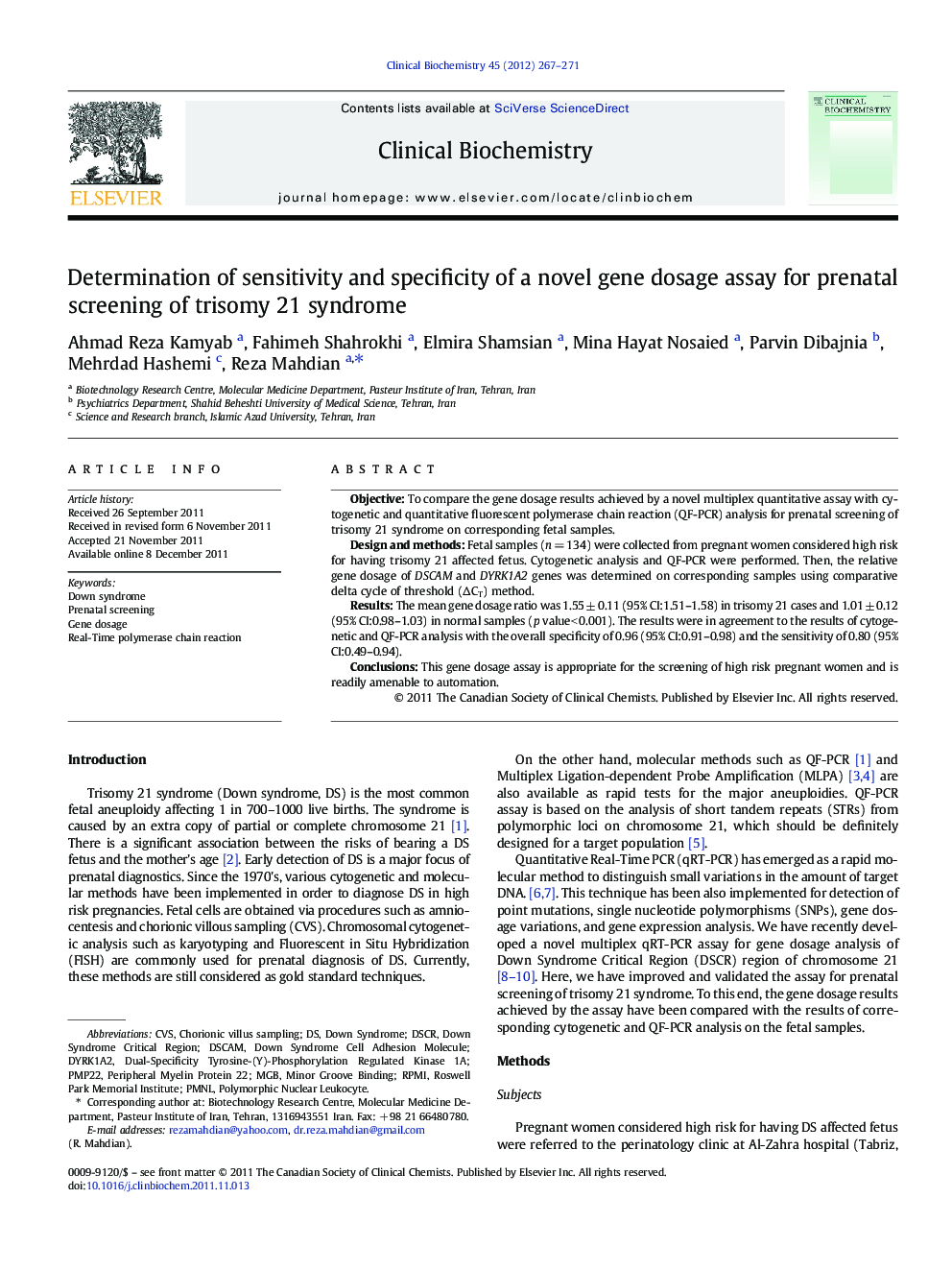| Article ID | Journal | Published Year | Pages | File Type |
|---|---|---|---|---|
| 1970636 | Clinical Biochemistry | 2012 | 5 Pages |
ObjectiveTo compare the gene dosage results achieved by a novel multiplex quantitative assay with cytogenetic and quantitative fluorescent polymerase chain reaction (QF-PCR) analysis for prenatal screening of trisomy 21 syndrome on corresponding fetal samples.Design and methodsFetal samples (n = 134) were collected from pregnant women considered high risk for having trisomy 21 affected fetus. Cytogenetic analysis and QF-PCR were performed. Then, the relative gene dosage of DSCAM and DYRK1A2 genes was determined on corresponding samples using comparative delta cycle of threshold (ΔCT) method.ResultsThe mean gene dosage ratio was 1.55 ± 0.11 (95% CI:1.51–1.58) in trisomy 21 cases and 1.01 ± 0.12 (95% CI:0.98–1.03) in normal samples (p value < 0.001). The results were in agreement to the results of cytogenetic and QF-PCR analysis with the overall specificity of 0.96 (95% CI:0.91–0.98) and the sensitivity of 0.80 (95% CI:0.49–0.94).ConclusionsThis gene dosage assay is appropriate for the screening of high risk pregnant women and is readily amenable to automation.
► Gene dosage assays for screening of trisomy 21 lack of systematic evaluation. ► A novel quantitative assay was developed using two target genes. ► The mean ratio was 1.55 ± 0.11 in trisomy cases and 1.01 ± 0.12 in normal samples. ► The assay discriminated trisomy samples with specificity of 96% and sensitivity of 80%.
